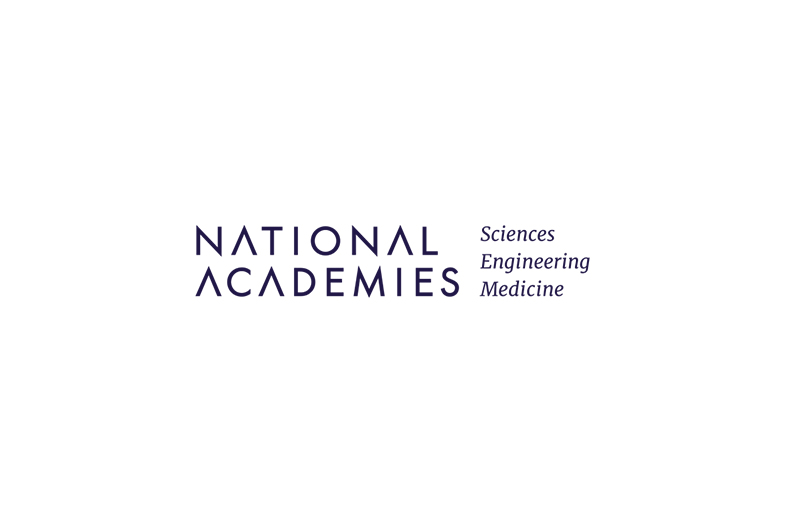
Report Urges Changes to Preschool Curricula to Improve Equity and Support High-Quality Early Education in the U.S.

WASHINGTON — A report from the National Academies of Sciences, Engineering, and Medicine lays out a new vision for high-quality preschool curricula that support equitable early education for all children. The report recommends that in the next five years, federal agencies, school district and state policymakers, foundations and funders, publishers, and teacher educators should support the revision of existing curricula and the development of new curricula to align with this vision.
Despite decades of research linking high-quality preschool to positive social and academic outcomes, access remains unevenly distributed, the report says. Children from historically marginalized communities, multilingual children, children living in poverty, and children with disabilities face greater barriers in access to preschool. They are also more likely to be enrolled in programs that are underfunded, have less qualified teachers, and do not support their home language and culture.
“A large body of evidence shows that early education can influence children’s long-term trajectories and life outcomes, but many children are denied the power and promise of high-quality preschool experiences or receive inappropriate early education that does not recognize and build on their linguistic and cultural strengths,” said Linda Espinosa, professor emeritus of early childhood education at the University of Missouri, Columbia, and co-chair of the committee that wrote the report. “Improving access for all children is a clear need, as well as ensuring program features that capitalize on their talents and promote lifelong competencies”.
High-quality preschool fosters holistic and healthy development and learning for every child regardless of location or socioeconomic status, and it should affirm children’s full identities, including race, culture, home language, gender, and ability — recognizing and building on children’s strengths while providing supports they need to reach their full potential, the report says. Much research has been conducted on early childhood education programs, but only recently has research been designed to isolate effective features of curriculum. Curricula can vary greatly in content, format, expectations for teachers and children, and assessment strategies. In addition to variations in curriculum, variations in the implementation can create additional differences in experiences for teachers and children.
The new report recommends the development of preschool curricula that:
In the next five years, curricula should be developed or revised by collaborative teams of researchers, curriculum developers, teacher educators, and practitioners — and be informed by the needs of children, families, and communities, the report says. Curriculum development should follow equity-based and rigorous empirically driven iterative design and evaluation processes.
Appropriate, engaging content and effective learning experiences may not be the same for every child, the report stresses. In fact, it is not possible to achieve equitable child outcomes by the end of preschool by teaching all children in the same way or offering them the same experiences. Rather, achieving equity and enabling children to attain desired learning and developmental goals may require adapting experiences, depending on children’s prior learning, abilities, strengths, and needs. For example, to meet the goal of early literacy with equity in mind, all children can benefit from books that reflect their identity and their cultural and linguistic knowledge.
Attention needed to systemic inequities
In addition to providing preschool programs with high-quality curricula, it is important to address the systemic deficiencies and inequities that prevent children from historically marginalized communities from accessing these programs, the report says.
“Curriculum in and of itself will not solve the deep, intractable challenges faced in early education from inadequate funding, inadequate wages, uneven workforce preparation and supports, and growing issues with staff recruitment,” said committee co-chair Sue Bredekamp, an early childhood education specialist and former director of professional development at the National Association for the Education of Young Children. “However, curricula can play a critical role in ensuring that regardless of systemic challenges, children experience safe, healthy, affirming, and enriching learning opportunities that promote success in school and life.”
To this end, there is a need for increased funding for preschool and expanded availability of high-quality programs and curricula that allow all children to reach their full potential, the report says.
In addition, curriculum developers should incorporate resources and structures that help teachers gain knowledge about effective teaching strategies and practices, including bolstering content knowledge and understanding of how children’s thinking and learning and emergent bilingualism can be best supported. Program leaders and policymakers should ensure that educators receive professional development, regular in-classroom coaching, and access to the materials that are developed in multiple languages and tied to the implementation of evidence-based curricula.
High turnover rates are prevalent in the field of early education, the report adds. Providing educators with the financial security and benefits that promote their physical and mental health is a necessary step to help maintain a diverse, well-qualified workforce that is large enough to meet the demand for high-quality preschool.
The study was undertaken by the Committee on a New Vision for High Quality Pre-K Curriculum and sponsored by the Bill & Melinda Gates Foundation and the National Academy of Sciences’ W.K. Kellogg Foundation Fund.
The National Academies of Sciences, Engineering, and Medicine are private, nonprofit institutions that provide independent, objective analysis and advice to the nation to solve complex problems and inform public policy decisions related to science, engineering, and medicine. They operate under an 1863 congressional charter to the National Academy of Sciences, signed by President Lincoln.
Contact:
Hannah Fuller, Media Relations Officer
Office of News and Public Information
202-334-2138; email news@nas.edu
This is a sponsored message and does not necessarily represent the views of the Education Writers Association, its board of directors, or its members. Want to see your release on the EWA site? Promote it with EWA.
Your post will be on the website shortly.
We will get back to you shortly